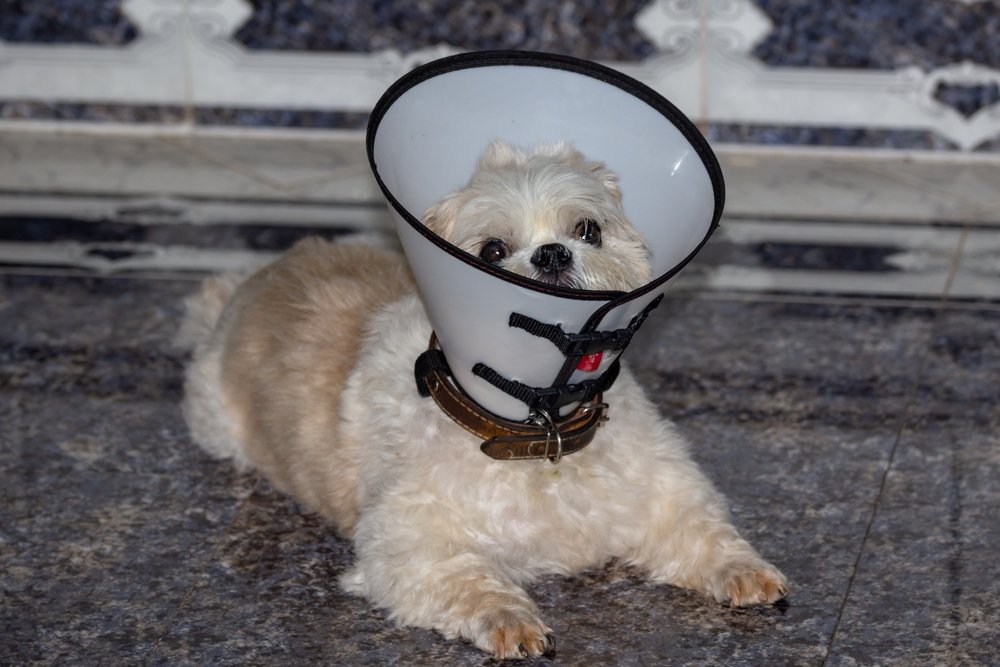Table of Contents
Are you a proud Shih Tzu owner? If so, you may have considered spaying or neutering your Shih Tzu but may have questions or concerns. Look no further!
This comprehensive guide will give you everything you need to know about spaying or neutering your Shih Tzu. We will cover everything from the benefits and risks to the ideal age for the procedure. We understand that your Shih Tzu’s well-being is of the utmost importance to you, so that we will delve into the potential health benefits, behavior improvements, and responsible pet ownership.
Whether you’re a first-time pet owner or a seasoned Shih Tzu enthusiast, this guide will equip you with the knowledge to make an informed decision about spaying or neutering your beloved companion.
The Importance of Spaying or Neutering Your Shih Tzu
Spaying or neutering your Shih Tzu is essential to responsible pet ownership. By opting for this procedure, you contribute to controlling the pet population and provide numerous health and behavioral benefits to your furry friend.
Spaying refers to the surgical removal of a female dog’s reproductive organs, while neutering is the term used for the surgical removal of a male dog’s testicles. A licensed veterinarian typically performs these procedures and requires general anesthesia.
It is important to note that the decision to spay or neuter your Shih Tzu should be made in consultation with your veterinarian, considering various factors such as the dog’s age, health, and individual needs.
Now that we understand the significance of spaying or neutering, let’s explore the benefits these procedures offer your Shih Tzu.

Benefits of Spaying or Neutering Your Shih Tzu
Spaying or neutering your Shih Tzu can benefit your pet and you as the owner. From health advantages to behavior improvements, the decision to have your Shih Tzu undergo this procedure can significantly enhance their quality of life.
One of the primary health benefits of spaying your female Shih Tzu is the prevention of uterine infections and mammary gland tumors. Removing the reproductive organs significantly reduces the risk of these potentially life-threatening conditions. Spaying your Shih Tzu also eliminates the possibility of developing ovarian cysts or certain cancers, such as ovarian and uterine cancer.
On the other hand, neutering your male Shih Tzu can prevent testicular cancer and reduce the risk of prostate problems. It can also help minimize undesirable behaviors, such as marking territory, aggression, and roaming for a mate. Neutering can contribute to a more focused and calm temperament in male Shih Tzus, making them easier to train and less prone to dominance-related issues.
In addition to the health benefits, spaying or neutering your Shih Tzu also plays a vital role in responsible pet ownership. By opting for these procedures, you actively participate in controlling the pet population and reducing the number of stray or abandoned animals. It is estimated that millions of dogs and cats are euthanized each year due to overpopulation, and by spaying or neutering your pet, you help prevent the cycle of unwanted litters.
Now that we understand the numerous benefits of spaying or neutering, let’s discuss the ideal age for these procedures in Shih Tzus.
When is the Best Time to Spay or Neuter Your Shih Tzu?
Determining the ideal age for spaying or neutering your Shih Tzu requires careful consideration. Traditionally, the procedures were performed around six months of age. However, recent research suggests that the best time for spaying or neutering can vary depending on the dog’s breed and size.
In the case of Shih Tzus, it is generally recommended to wait until they reach maturity, which is around 6 to 9 months of age. Delaying the procedure allows your Shih Tzu’s body to develop, reducing the risk of potential complications entirely. Additionally, waiting until your Shih Tzu is older allows the growth plates to close, which can help prevent specific orthopedic issues that may arise if the procedure is performed too early.
It is essential to consult your veterinarian to determine the best time to spay or neuter your Shih Tzu based on their needs and health condition. Your veterinarian will consider factors such as the dog’s growth rate, overall health, and any breed-specific considerations before recommending the optimal age for the procedure.
Now that we have established the ideal age for spaying or neutering Shih Tzus, let’s take a closer look at the procedure.
The Spaying or Neutering Procedure for Shih Tzus
The spaying or neutering procedure for Shih Tzus is an ordinary surgical operation licensed veterinarians perform. Before the procedure, your Shih Tzu will thoroughly examine to ensure they are healthy enough to undergo anesthesia and surgery. Blood tests may also be conducted to identify any potential underlying health issues.
On the day of the procedure, your Shih Tzu will be placed under general anesthesia to ensure they remain comfortable and pain-free throughout the surgery. The veterinarian will make a small incision in the abdomen for spaying or a small incision near the scrotum for neutering. The reproductive organs will be carefully removed, and the incision will be sutured.
After the procedure, your Shih Tzu will be closely monitored during recovery. They may experience some discomfort, swelling, or lethargy initially, but these symptoms are typically temporary. Your veterinarian may prescribe pain medication or provide post-operative care instructions to ensure a smooth recovery.
It is essential to follow all post-operative care instructions provided by your veterinarian, including limiting activity, preventing your Shih Tzu from licking the incision site and monitoring for any signs of infection or complications. With proper care and attention, your Shih Tzu should recover fully within a few weeks.
Recovery and Aftercare for Spayed or Neutered Shih Tzus
The recovery and aftercare period following the spaying or neutering procedure is crucial for your Shih Tzu’s well-being. A few simple guidelines can ensure a smooth recovery and minimize potential complications.
During recovery, limiting your Shih Tzu’s physical activity is vital to prevent any strain on the incision site. Avoid running, jumping, or strenuous play for at least ten to fourteen days. Keep your Shih Tzu in a calm and quiet environment to promote healing and reduce the risk of injury.
It is also crucial to prevent your Shih Tzu from licking or biting the incision site. Dogs can lick wounds intuitively, leading to infection or delayed healing. Your veterinarian may provide you with an Elizabethan collar, commonly known as a “cone of shame,” to prevent your Shih Tzu from accessing the incision site.
During recovery, monitor your Shih Tzu for any signs of infection, such as redness, swelling, or discharge from the incision site. If you notice any concerning symptoms or your Shih Tzu is not recovering as expected, contact your veterinarian for further guidance.
Once your Shih Tzu has fully recovered, continue providing them with proper care and nutrition. Regular exercise, a balanced diet, and routine veterinary check-ups are essential for maintaining your Shih Tzu’s overall health and well-being.

Myths and Misconceptions about Spaying or Neutering Shih Tzus
There are several myths and misconceptions surrounding spaying or neutering Shih Tzus that are important to address. By dispelling these misconceptions, we can ensure pet owners make informed decisions based on accurate information.
One common myth is that spaying or neutering will cause a significant change in your Shih Tzu’s personality. While it is true that the procedure can help reduce specific behavioral issues, such as aggression or marking, it will not drastically alter your Shih Tzu’s fundamental personality traits. Your Shih Tzu will still retain the unique characteristics and traits that make them who they are.
Another myth is that spaying or neutering will make your Shih Tzu gain weight. While it is true that the metabolic rate of spayed or neutered dogs may be slightly lower than intact dogs, weight gain is primarily influenced by diet and exercise. By providing your Shih Tzu with a balanced diet and regular exercise, you can help them maintain a healthy weight.
Addressing the misconception that spaying or neutering is a painful or traumatic experience for your Shih Tzu is also essential. While the procedure does require general anesthesia and a surgical incision, the veterinary team takes every precaution to ensure your Shih Tzu’s comfort and safety throughout the process. With proper pain management and post-operative care, any discomfort experienced by your Shih Tzu is typically minimal and temporary.
By debunking these myths and misconceptions, we can encourage responsible pet owners to make informed decisions about spaying or neutering their Shih Tzus.
Alternatives to Spaying or Neutering for Shih Tzus
While spaying or neutering is generally recommended for Shih Tzus, there may be circumstances where alternatives are considered. It is important to remember that these alternatives should only be pursued after careful consideration and consultation with your veterinarian.
One alternative to traditional spaying or neutering is hormone-sparing surgery. This procedure removes the reproductive organs while sparing the hormone-producing tissues. It aims to provide the health benefits of spaying or neutering while preserving the hormonal balance in your Shih Tzu. However, it is essential to note that hormone-sparing surgery is not widely available and may not be suitable for all dogs.
Another alternative is using contraceptives, such as injections or oral medications. These options can help prevent unwanted pregnancies without the need for surgical intervention. However, it is essential to consult your veterinarian to understand these methods’ potential risks and side effects, as they may not suit all dogs.
Remembering that each alternative option has its considerations and potential risks is crucial. It is always best to consult your veterinarian to determine the most appropriate course of action for your Shih Tzu based on their needs and circumstances.

Finding a Reputable Veterinarian for Spaying or Neutering Your Shih Tzu
Finding a reputable veterinarian is essential when spaying or neutering your Shih Tzu. Here are a few tips to help you find a reliable veterinary professional for your pet’s procedure.
1. Research and Recommendations
Research local veterinarians specialize in minor animal surgery. Seek recommendations from friends, family, or fellow pet owners who have had positive experiences with their veterinarians.
2. Credentials and Experience
Look for a licensed veterinarian with extensive experience performing spaying or neutering procedures specifically for Shih Tzus. A veterinarian knowledgeable about the breed’s unique characteristics and needs will provide the best care for your furry friend.
3. Facility and Equipment
Visit the veterinary clinic or hospital where the procedure will take place. Ensure the facility is clean, well-equipped, and up-to-date with the latest surgical technologies. A well-maintained and organized clinic reflects the professionalism and dedication of the veterinary staff.
4. Communication and Trust
Schedule a consultation with the veterinarian to discuss the procedure, ask questions, and address any concerns you may have. A reliable veterinarian will take the time to listen to your concerns, provide clear explanations, and establish trust between you and the veterinary team.
5. Cost and Payment Options
Inquire about the cost of the procedure and any additional fees or services that may be required. Discuss payment options and inquire about potential financial assistance programs if needed.
Following these tips and conducting thorough research, you can find a reputable veterinarian who will provide the best care for your Shih Tzu during spaying or neutering.
Conclusion
Deciding on spaying/neutering your Shih Tzu is key. Consult your vet. These surgeries help control the population and enhance health and behavior. Responsible ownership means no unwanted litter. Find a skilled Shih Tzu vet, and follow aftercare for a smooth recovery. Being informed equals a happier, healthier pet and community. Choose wisely; love your pet!
FAQs
What is spaying and neutering?
Spaying is the surgical removal of a female Shih Tzu’s reproductive organs (ovaries and usually the uterus), while neutering refers to the surgical removal of a male Shih Tzu’s testicles. These procedures are done to prevent reproduction and provide various health benefits.
Why should I spay or neuter my Shih Tzu?
Spaying or neutering your Shih Tzu can have several benefits, including preventing unwanted pregnancies, reducing the risk of specific health issues (such as uterine infections or testicular cancer), and minimizing behavioral problems, such as territorial marking and roaming.
At what age should I spay or neuter my Shih Tzu?
The ideal age for spaying or neutering can vary, but it’s generally recommended to have these procedures done around six months of age. However, it’s essential to consult your veterinarian, as the timing may depend on the dog’s health and circumstances.
Are there any potential drawbacks or risks to spaying or neutering?
While the benefits usually outweigh the risks, there can be potential drawbacks. For example, spaying or neutering might lead to slight changes in metabolism, so you may need to adjust your Shih Tzu diet to prevent weight gain. It’s essential to discuss potential risks and benefits with your vet.
How do I care for my Shih Tzu after spaying or neutering?
After the surgery, your Shih Tzu will need some time to recover. Keep them calm and quiet, prevent them from licking the surgical site, and follow any post-operative care instructions provided by your veterinarian. Ensure they have a clean, comfortable space to rest and monitor for signs of infection or complications.
